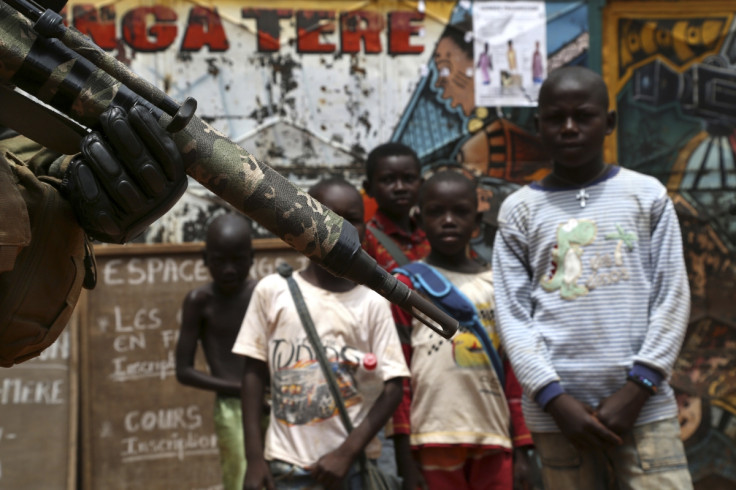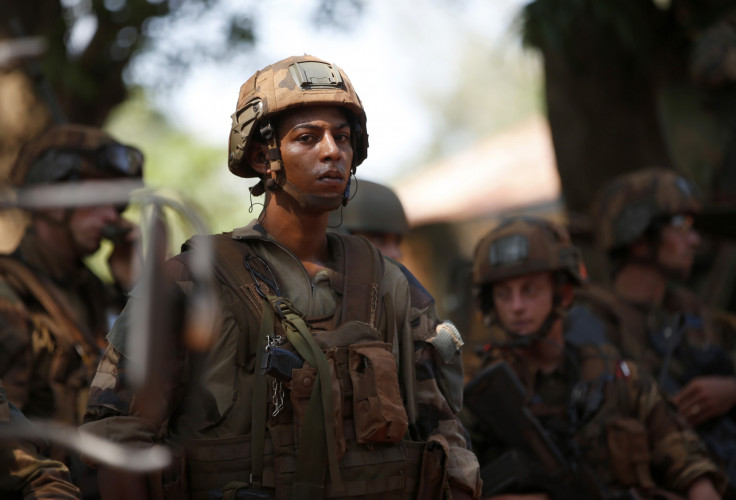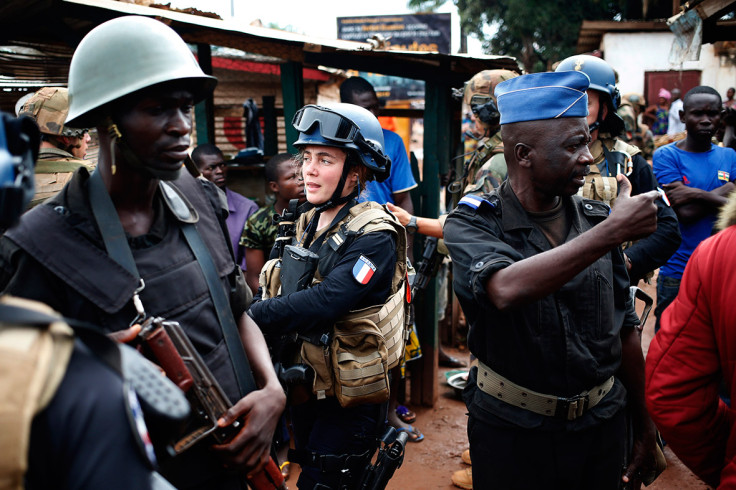CAR: Leaker of UN peacekeeping sex abuse claims answers questions about allegations

The head of an advocacy group that leaked reports revealing of United Nations (UN) peacekeepers allegedly sexually abusing children and women in the conflict-ridden Central African Republic (CAR) has accused the UN of failing to address the disturbing allegations.
Aids-free World, which has for a year now been leaking reports revealing that UN peacekeepers were suspected of these crimes, launched the Code Blue campaign to end impunity for sexual exploitation and abuse by UN peacekeeping personnel. On 30 March, for instance, the group revealed that French Peacekeepers had reportedly forced girls to have sex with a dog, and that around 100 girls had been abused by UN Peacekeepers.
IBTimes UK exclusively spoke to Paula Donovan, co-director of the Aids-Free World, about the claims, and the necessary steps to be taken to prevent and stop the rampant abuses.
Your group has been collecting and revealing evidence of these crimes since May last year. Do you feel you were not taken seriously?
Paula Donovan: "It's the worse thing in the world to be able to say, 'I told you so', when you are talking about hundreds of victims who have explained to the UN exactly what happened to them. This is never the full story, and we have been saying that for a year now, that if they (the UN) dug any deeper, they would find so many more. Now they've dug a little bit deeper, they have found at least over a hundred more."
"The most recent crimes reported were actually committed up to the 28 March (three days ago). It makes you speechless, it really is extraordinary. How in the world can the UN set up a peacekeeping operation that was operational by September 2014 in a country where they know this sort of thing is going on, collect actual evidence and testimonies from children and still, in 2016, as the number of allegations just keep ratcheting up, why are they only planning now what should be done as far as protection goes?"

If Aids-free World has been calling on the UN to prioritise these victims, what took the world body so long?
P.D: "It's clearly that the UN bureaucracy, the Secretary General and his staff, are unable to handle this. Their rhetoric around the 'We are so concerned about victims who are our top priority' is just never backed up by urgent actions on the ground."
You have been openly critical about the fact that UN's committees (the Office of the High Commissioner for Human Rights and UNICEF) were tasked with taking victims and witnesses' accounts. Can you explain why?
P.D:"These are the same two entities who gathered testimonies, who inappropriately took testimonies from children in a way that was so unprofessional and not legal way back in 2014 and then sat on it for eight months without doing anything with that information.
"So, to say that they are now going to take those same staff members and send them out again to talk to witnesses is just begging for another disaster, and building roadblocks to justice."
Yet, following an urgent crisis meeting, on 29 March, the UN apparently decided to send investigative assessment teams to CAR.
PD: "The UN plays it both ways: on the one hand, they say 'we don't have any law enforcement authorisation authority, no judicial authority and once these crimes are reported to us, then we have to hand it over to the appropriate government authorities who have jurisdiction over the perpetrators, and we're pressing them to do a better job'.
"On the other hand, however, they are sending in what they call investigators – who are completely unauthorised people who have no legal authority to demand that witnesses give them testimony, they have inadequate if any training to deal with the victims of sexual abuse, and frankly are intervening in criminal matters where they have no business doing so.
"Imagine if that was how any government, the US or the UK dealt with massive sexual abuse: just pulled together a team of available staff from the same organisation that has been accused and sent them out to see if they could start questioning people. It's crazy. Preserving evidence is also completely beyond their purview, as they have no skills and no authority to touch the evidence in a crime, never mind preserving it then passing it along ensuring for a chain of command and custody of the evidence that will be useful in any court of law."

The UN has also spoken about an "established" victims' assistance trust fund. Could such a fund help protect and bring reparations to the victims?
PD: "It is something they have been talking about for ever but they are now claiming that the Victims Assistance Fund is operational. While they have the capacity – they opened a bank account within the UN coffer – to accept funding to the fund, they have given no indication of who is eligible, how do the people who are eligible apply to this funding, how quickly it will be dispersed and how many actual dollars are in the fund? I believe it is zero. When we ask for information from senior officials, we get half-truths."
The latest report reveals that soldiers from a number of nationalities are accused of abusing girls and women – soldiers from the DR Congo, Gabon and France. How involved are their own governments in holding them accountable and prosecuting them?
P.D: "They are absolutely not doing enough. Not a single person has been indicted in any of those charges. There isn't anyone who the French have interviewed who has so far actually been charged with those crimes. We're talking 18 months since they first sent investigators to the the CAR.
"What we know now is that those troops continued to sexually abuse children and women in the country. Throughout that whole period, the French government in its capacity as well as one of the permanent five members of the UN Security Council has been taking the high moral ground by saying the abuses must end. But not in reference to their own personnel, rather in reference to the UN soldiers who were contributed by developing countries.
"The governments can't intervene even if they were completely willing and able until they get these reports from the UN. Until then, they don't know anything about it. For instance, UNICEF conducted interviews over two weeks ago with 98 girls who said they had been abused. Why in the world would it take UNICEF two weeks to try to decide what sort of protection they should put in place and money to provide support, but also to refer this to the appropriate governments to charge?

Who, in your assessment, is responsible for these long-standing failings?
PD:"People have lost all faith both inside and outside the organisation that (Secretary General) Ban Ki Moon has the wherewithal to deal with this, and the UN has dozens and dozens of highly-paid and supposedly highly-skilled personnel at very senior levels, with access to all sorts of information and resources and they are collectively responsible for this.
"You can always say that the buck stops with Ban Ki-moon, which is true, but if you are an international organisation and you know that Ban Ki-moon is simply inept, then that does not absolve your responsibility for doing your job.
"The name of Hervé Ladsous, the Head of the Department of Peacekeeping Operations, who is in the CAR, is never raised. For the last year, he's been invisible. He is a French national, the head of the department and is the person who is ultimately responsible along with his counterparts. He and Anthony Lake (executive director of UNICEF) have been untouchable and keep their heads down to stay out of the fray. It's time that serious investigations into those officials are undertaken."
Earlier this month, you proposed a solution to deal with the UN child sexual abuse crisis. Can you explain what recommendations you have made to the UN?
P.D: "We called for the creation of a board of oversight, outside and independent of the UN Secretary-General and the bureaucracy, who will be charged with taking over the role that Ban Ki-moon has been playing so ineffectively – which is to try to prevent and stop this epidemic and actually respond to it.
"The oversight board which could consist of impartial judges and lawyers, experts on sexual violence, leaders in women's rights and child protection, knowledgeable military and police, would be nominated, appointed by, and reporting directly to the UN member states."
© Copyright IBTimes 2025. All rights reserved.






















